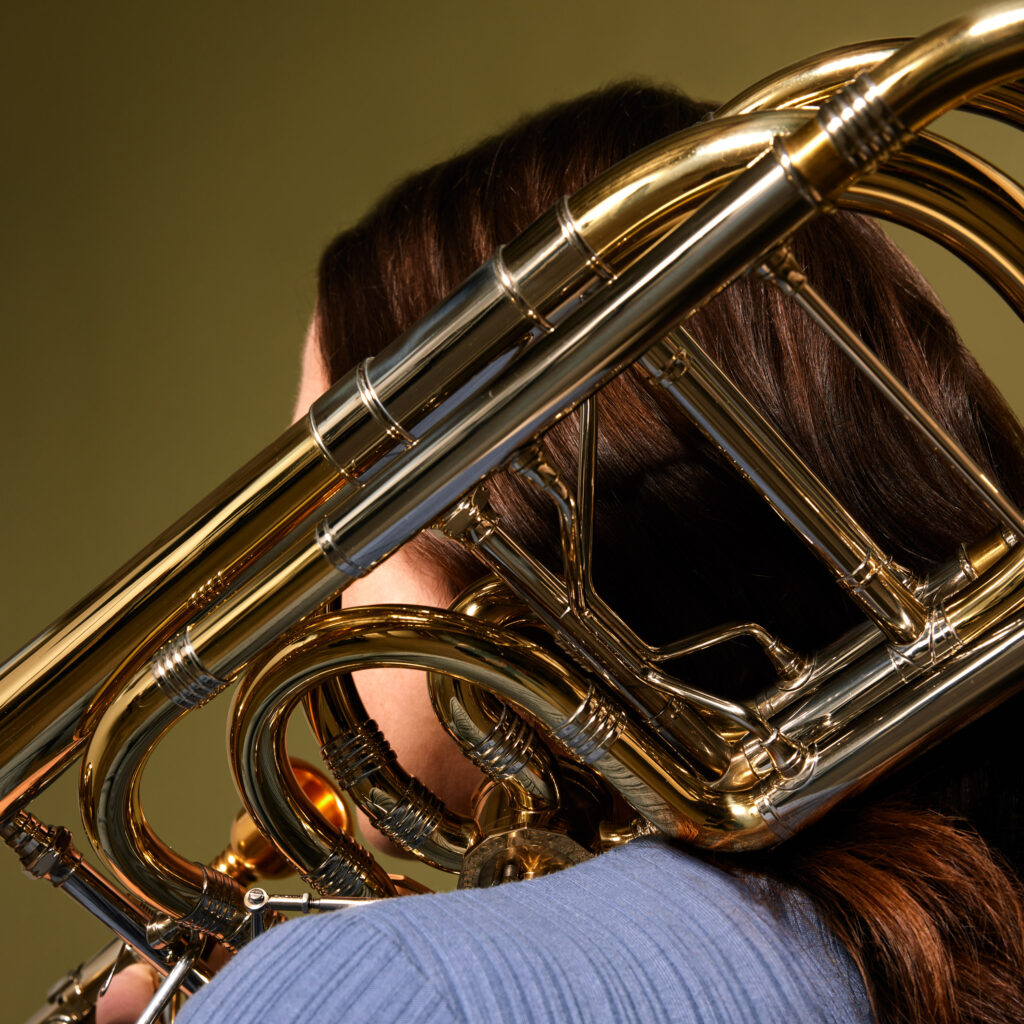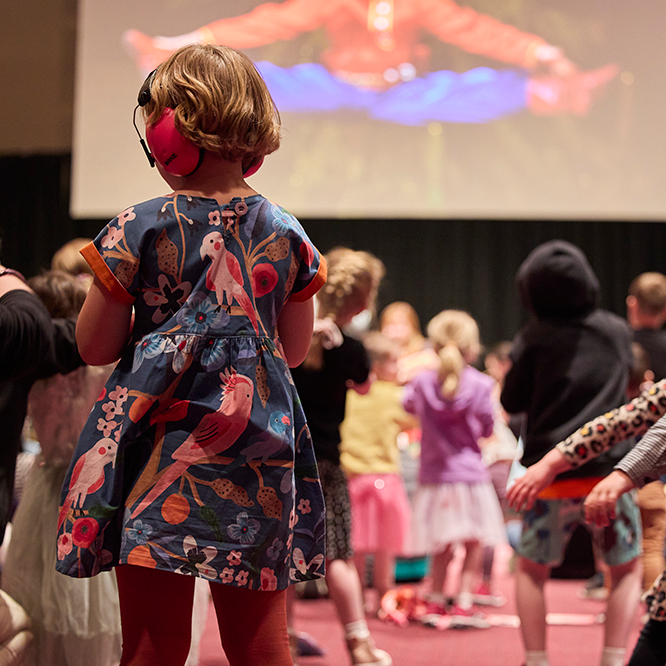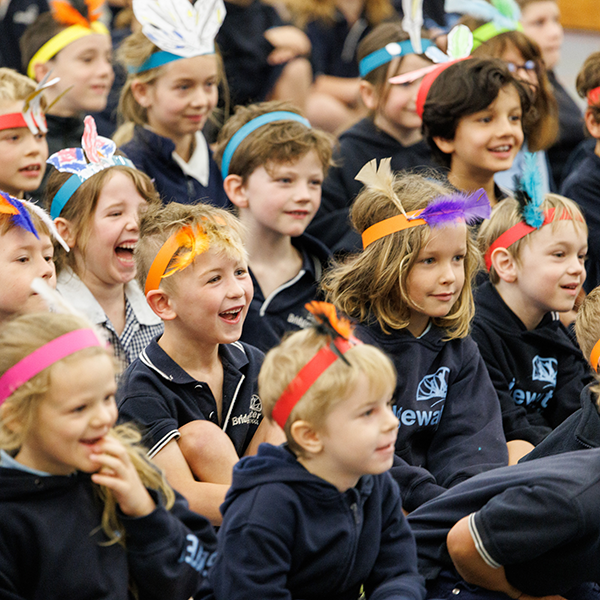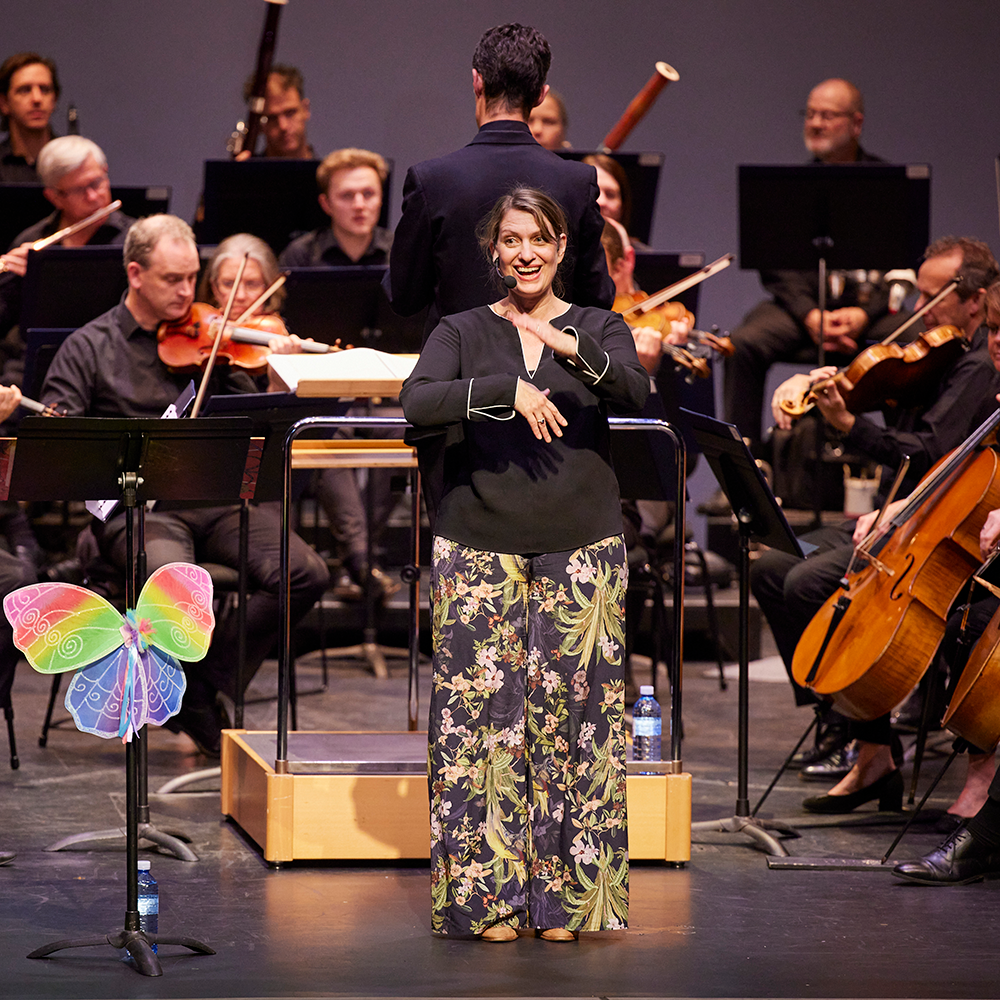Meet Orchestra Librarian Bruce Stewart
- Community

When the orchestra takes to the stage, all focus is on the music. But before the musicians can play, the Orchestra Librarian makes sure they have the sheet music to play from. Today, we meet Bruce Stewart, the ASO’s Orchestra Librarian.
Bruce’s journey with orchestra started in 1983, when he took on a casual position playing the oboe. He’s a talented musician, playing a total of seven musical instruments in his lifetime.
When he’s not listening to classical music, Bruce likes to turn up the volume on a bit of big band swing. His idea of a perfect day is to lie on the grass in the Adelaide Parklands with his beautiful rescue dog, Chloe. Most importantly, music is his life. Take some time to get to know Bruce and find out what it takes to be the ASO’s Orchestra Librarian.
Tell us about your role as Orchestra Librarian.
An Orchestra Librarian is essential for any orchestra, professional or otherwise. Somebody needs to make sure that all the players required for a piece have the appropriate music, and that person is the librarian. As well as physically handling the music, my role also requires a level of research. For instance, in the early stages of planning a concert, the number of players required has to be taken into account for both staging and financial reasons. Researching instrumentation (i.e. what instruments are needed for a particular piece of music) is part of my job. Some pieces of music might require an “exotic” instrument (for example a bass oboe or heckelphone, or even things like honky-tonk pianos or theorbos) and that can have quite a financial impact on the cost of putting on a concert.
What’s the process of getting sheet music in time for a concert?
Much of the music the ASO plays is delivered from Symphony Services International (SSI) in Sydney. In the days when all the major orchestras were run by the ABC, this was the National Music Library. The ASO does have a library of music sets but much of this is no longer used. Some of the music is outdated – there are some works in the library that date from the ASO’s very beginning and is no longer popular – and some of the sets are simply worn out through overuse.
What qualifications do you need to be an Orchestra Librarian?
To my knowledge, there are no tertiary courses on how to become an Orchestra Librarian, but one essential skill is the ability to read music! Some instruments in the orchestra have parts written in a different clef, the sign at the beginning of the written music that tells the player what note is what. A librarian has to be able to read treble clef, alto clef, tenor clef, and bass clef. It even helps to be able to interpret some strange clefs like soprano clef. Thankfully that is something that isn’t used very often. For even stranger clefs the librarian’s first question is to Mister Google!
Do you need to know any other languages for reading music?
An Orchestra Librarian has to have some understanding of other languages. I can speak no other language other than English but I have to be able (at least) to know what an instrument’s name is in French, German, Italian and a number of other European languages.
Is all the music online, or do you have access to original sheet music?
While some orchestral music sets are available online, the majority of the music played by the ASO still comes in a box or off the shelf.
Do you play or compose?
I have composed music for many years but I don’t think of myself primarily as a composer. I have written quite a bit of choral music over the years, some of which has become quite popular. Recently I finished a work titled Chloe the Orchestra Dog. This is designed as an “educational” piece along the lines of Prokofiev’s Peter and the Wolf or Britten’s Young Person’s Guide to the Orchestra. In case you were wondering, Chloe is my gorgeous little dog!
I also play a few instruments. Oboe is my main instrument but I also play accordion in a trio and the ukulele. Over the years I have also played clarinet, saxophone and flute. As a young man I also spent a few years playing the bagpipes in a pipe band.
What is your most memorable ASO performance and why?
The most memorable performance for me personally was a performance of Holst’s The Planets with Arvo Volmer conducting. I was booked to play Heckelphone (an instrument similar to a bass oboe) and just before the dress rehearsal something went wrong with the instrument and it became unusable. I had to apologise to the conductor for my absence in the rehearsal and drive about forty miles to the best instrument repairer available. Thankfully he was able to repair the damage and everything worked as it should in the performance that evening.
What is the strangest request for music you have ever had?
Probably the strangest thing I have had to order in is John Cage’s 4’33”. This piece consists of four minutes and thirty-three seconds of players not playing their instruments. Nevertheless, orchestral parts have to be hired (they’re effectively blank pages!) and royalties paid for copyright reasons.
What is your favourite piece of music and why?
If I was forced to name just one, I would have to say Nimrod from Elgar’s Enigma Variations. Each variation is meant to describe the personality of one of Elgar’s friends. I find it very moving that Elgar could write such beautiful music for his friend Augustus Jaeger. He must have respected the man very much.
How has COVID-19 affected the library’s function?
COVID-19 has affected everybody. For me, with ASO concerts being cancelled or postponed, I am not able to do a big part of my job as it requires physical handling of the music.
Bruce’s Top 5 Playlist
- Franz Biebl – Ave Maria
- Andrea Gabrieli – Omnes Gentes
- Dmitri Shostakovich – Piano Concerto No. 2, II Andante
- Strauss – Four Last Songs – Im Abendrot
- Elgar – Enigma Variations – Nimrod




